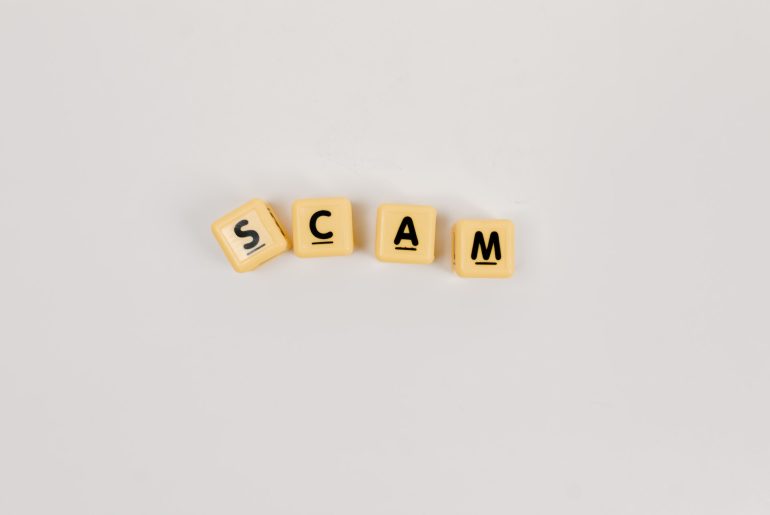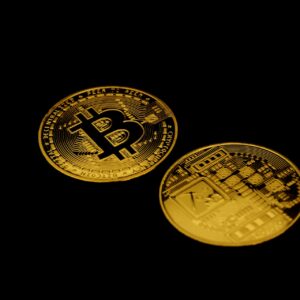This article may contain references to products or services from one or more of our advertisers or partners. We may receive compensation when you click on links to those products or services. Nonetheless, our opinions are our own.

Updated by Albert Fang
Decentralized finance (DeFi) is becoming increasingly popular as a way to earn passive income and diversify one’s investment portfolio. However, as with any new technology, there are risks involved, and investors need to be aware of potential DeFi scams. In this article, we’ll explore common DeFi scams, warning signs to look out for, security measures to protect your funds, due diligence steps to take, and some final thoughts on staying safe while investing in DeFi. Let’s discuss the topic in detail! In addition, if you are looking for a hassle free and user friendly trading platform, you can visit bitbot-app.com.
What is DeFi?
DeFi, short for Decentralized Finance, is a new financial system built on blockchain technology that aims to make financial services more accessible, transparent, and decentralized. Unlike traditional finance, which is controlled by centralized institutions such as banks and governments, DeFi is built on decentralized networks such as Ethereum, and allows anyone with an internet connection to access financial services without the need for intermediaries.
DeFi applications use smart contracts to execute financial transactions automatically and securely, without the need for a central authority.
Common DeFi Scams
DeFi scams come in various forms, and it’s important to be aware of them to avoid falling victim. Here are some common DeFi scams you should know:
Ponzi schemes: These scams promise high returns to early investors and use their investments to pay out returns to later investors. The scheme eventually collapses when there are not enough new investors to pay out the promised returns.
Fake token offerings: Scammers create fake tokens and promote them as legitimate projects with high potential. They often use social media platforms like Twitter and Telegram to spread the word and attract unsuspecting investors.
Phishing scams: Scammers send fake emails, messages, or social media posts that appear to be from a legitimate DeFi project. They try to trick investors into giving away their private keys, seed phrases, or other sensitive information that can be used to steal their funds.
Warning Signs
There are warning signs that investors should look out for when considering a DeFi project. Here are some of them:
Unrealistic returns: If a DeFi project promises returns that are too good to be true, it’s likely a scam.
Lack of transparency: If a DeFi project doesn’t provide clear and transparent information about its team, technology, or business model, it’s a red flag.
Anonymous teams: If a DeFi project’s team is anonymous or pseudonymous, it’s hard to verify their credentials and track record.
Researching DeFi Projects
Investors should conduct research on a DeFi project before investing. Here are some steps to take:
Check the project’s website: Look for information about the team, technology, business model, and roadmap.
Check the project’s social media channels: Look for updates, news, and engagement with the community.
Check the project’s community forums: Look for discussions, questions, and feedback from other investors.
Check third-party resources: Look for reviews, ratings, and analysis from trusted sources like CoinMarketCap, CoinGecko, and CryptoSlate.
Security Measures
Investors should take security measures to protect their funds from DeFi scams. Here are some tips:
Use secure wallets: Use hardware wallets like Ledger or Trezor or software wallets like MetaMask or MyEtherWallet.
Never share sensitive information: Never share your private keys, seed phrases, or other sensitive information with anyone.
Keep your private keys safe: Store your private keys offline or in a secure location that only you have access to.
Due Diligence
Investors should conduct due diligence on a DeFi project before investing. Here are some steps to take:
Verify the project’s legitimacy: Check if the project has been audited by a reputable firm like Certik or Quantstamp.
Check the project’s smart contracts: Use tools like Etherscan or BscScan to verify the project’s smart contracts and code.
Research the team: Check the team’s credentials, track record, and reputation in the industry.
Conclusion
DeFi is an exciting new frontier for investors, but it also comes with risks. It’s essential to be aware of potential DeFi scams and take steps to protect your funds. Remember to conduct due diligence on a DeFi project before investing, and look out for warning signs such as unrealistic returns, lack of transparency, and anonymous teams. By following the tips and best practices outlined in this article, you can minimize your risks and stay safe while investing in DeFi.

Reviewed and edited by Albert Fang.
See a typo or want to suggest an edit/revision to the content? Use the contact us form to provide feedback.
At FangWallet, we value editorial integrity and open collaboration in curating quality content for readers to enjoy. Much appreciated for the assist.
Did you like our article and find it insightful? We encourage sharing the article link with family and friends to benefit as well - better yet, sharing on social media. Thank you for the support! 🍉
Article Title: Avoid Losing Your Funds to DeFi Scams
https://fangwallet.com/2023/04/16/avoid-losing-your-funds-to-defi-scams/The FangWallet Promise
FangWallet is an editorially independent resource - founded on breaking down challenging financial concepts for anyone to understand since 2014. While we adhere to editorial integrity, note that this post may contain references to products from our partners.
The FangWallet promise is always to have your best interest in mind and be transparent and honest about the financial picture.
Become an Insider

Subscribe to get a free daily budget planner printable to help get your money on track!
Make passive money the right way. No spam.
Editorial Disclaimer: The editorial content on this page is not provided by any of the companies mentioned. The opinions expressed here are the author's alone.
The content of this website is for informational purposes only and does not represent investment advice, or an offer or solicitation to buy or sell any security, investment, or product. Investors are encouraged to do their own due diligence, and, if necessary, consult professional advising before making any investment decisions. Investing involves a high degree of risk, and financial losses may occur including the potential loss of principal.
Source Citation References:
+ Inspo










































